Weekend Course
Machine Learning: Everything You Wanted to Know but Were Afraid to Ask
ISMRM & SMRT Annual Meeting • 15-20 May 2021

| Concurrent 4 | 14:30 - 15:15 | Moderators: Carl-Fredrik Westin & Demian Wassermann |
| How to Translate ML into the Clinic
Shreyas Vasanawala
Machine learning (ML) has the potential to impact strongly medical imaging. Though much attention has been focused on image analysis, ML is poised to improve imaging at all steps of the medical imaging chain. This presentation will provide an overview of the significant barriers to widespread translation of ML, the steps in the medical imaging chain at which ML can be applied, and examples of approaches that have enabled use in clinical settings.
|
||
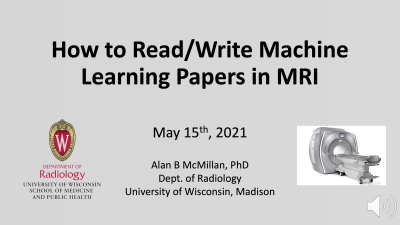 |
How to Read/Write Machine Learning Papers in MRI
Alan McMillan
Machine and deep learning applications are taking our field by storm. Learn more about specific aspects that you should know about when reading and/or writing machine learning or deep learning papers. This talk covers existing reporting guidelines for AI papers and describes specific issues that should be considered by both readers and writers to ensure the development of robust and repeatable research.
|
|
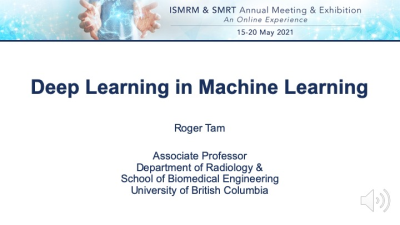 |
Deep Learning in ML
Roger Tam
This lecture is an introduction to deep learning and will present the following topics: the components of a basic neural network, supervised training using backpropagation, basic features of a convolutional neural network, key considerations in the design and training of neural networks, and resources to get started.
|
|
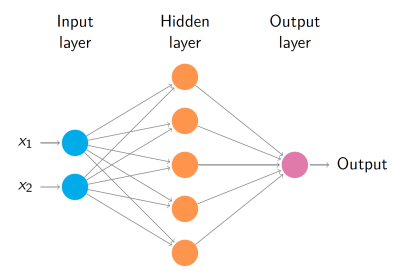 |
Basic Introduction to ML
Jeffrey Fessler
Basic introduction to machine learning.
|
|
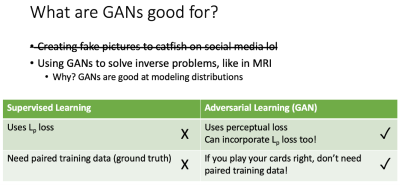 |
Adversarial Learning in ML
Elizabeth Cole
This talk motivates adversarial learning in ML from a MR researcher perspective. First, I’ll be briefly discussing some limitations of supervised learning. Next, I’ll be introducing a form of adversarial learning, generative adversarial networks – or GANs for short. Then, I’ll show how we can combine GANs with compressed sensing for the purpose of MRI reconstruction. Next, I’ll be showing some work on a fully unsupervised reconstruction method using GANs. Finally, I’ll discuss some practical considerations for those interested in training their own GAN.
|
|
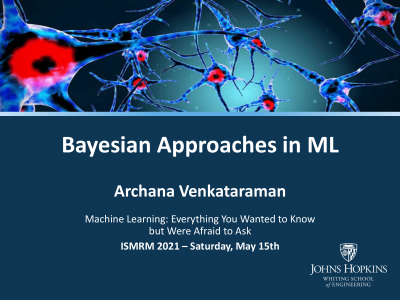 |
Bayesian Approaches in ML
Archana Venkataraman
At its core, Bayesian ML is about making predictions from noisy and imperfect data. These predictions rely on the posterior distribution, which combines a priori assumptions about the unknown quantities with a likelihood model for the observed data. This tutorial introduces classical themes in Bayesian analysis. We will start with fundamentals of random variables and conditional distributions, building into the well-known “Bayes Rule”. From here, we will dive into hypothesis testing and parameter estimation, including how to perform inference in these setups. Finally, we will showcase a flexible and interpretable Bayesian model for functional connectomics.
|
The International Society for Magnetic Resonance in Medicine is accredited by the Accreditation Council for Continuing Medical Education to provide continuing medical education for physicians.